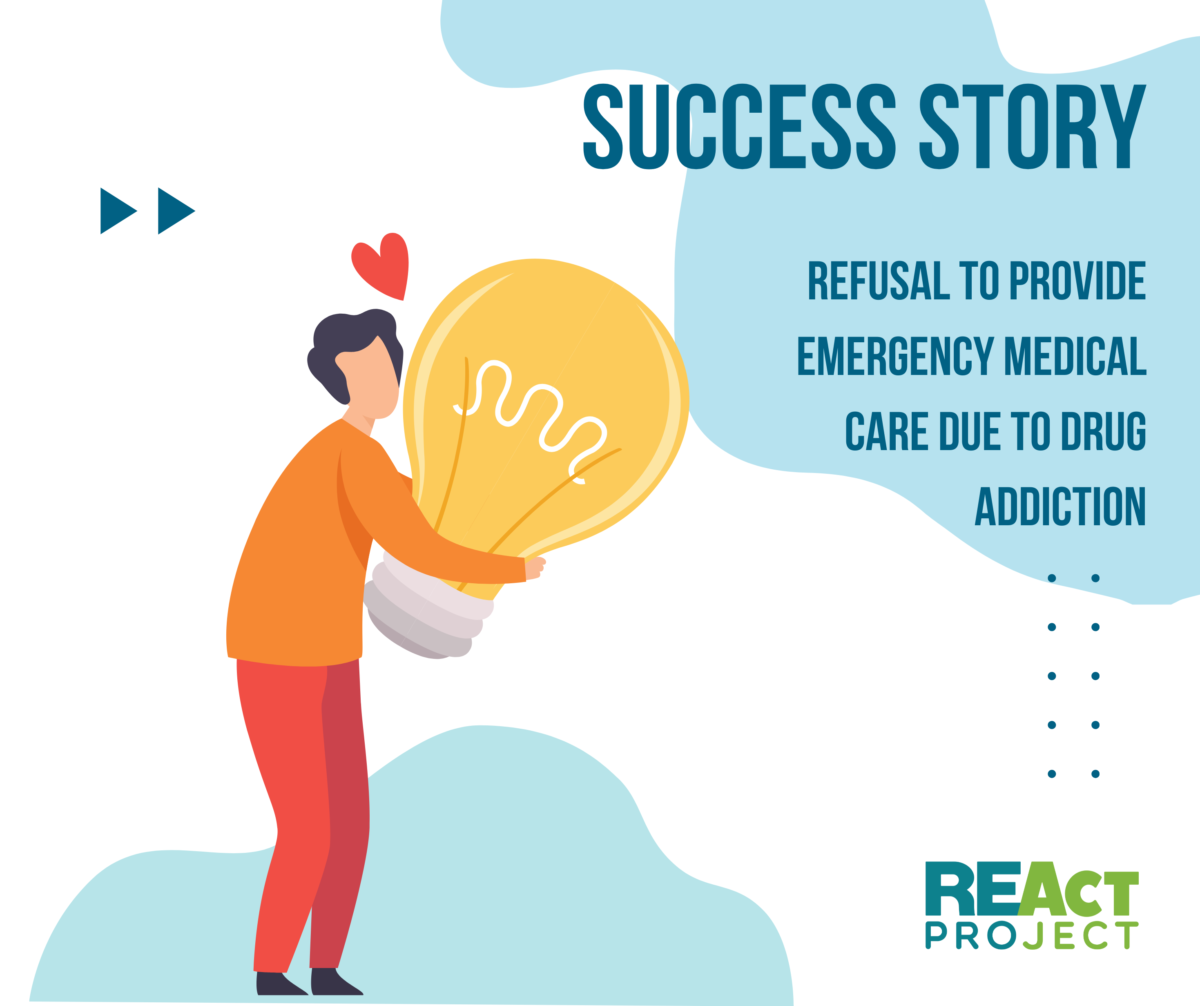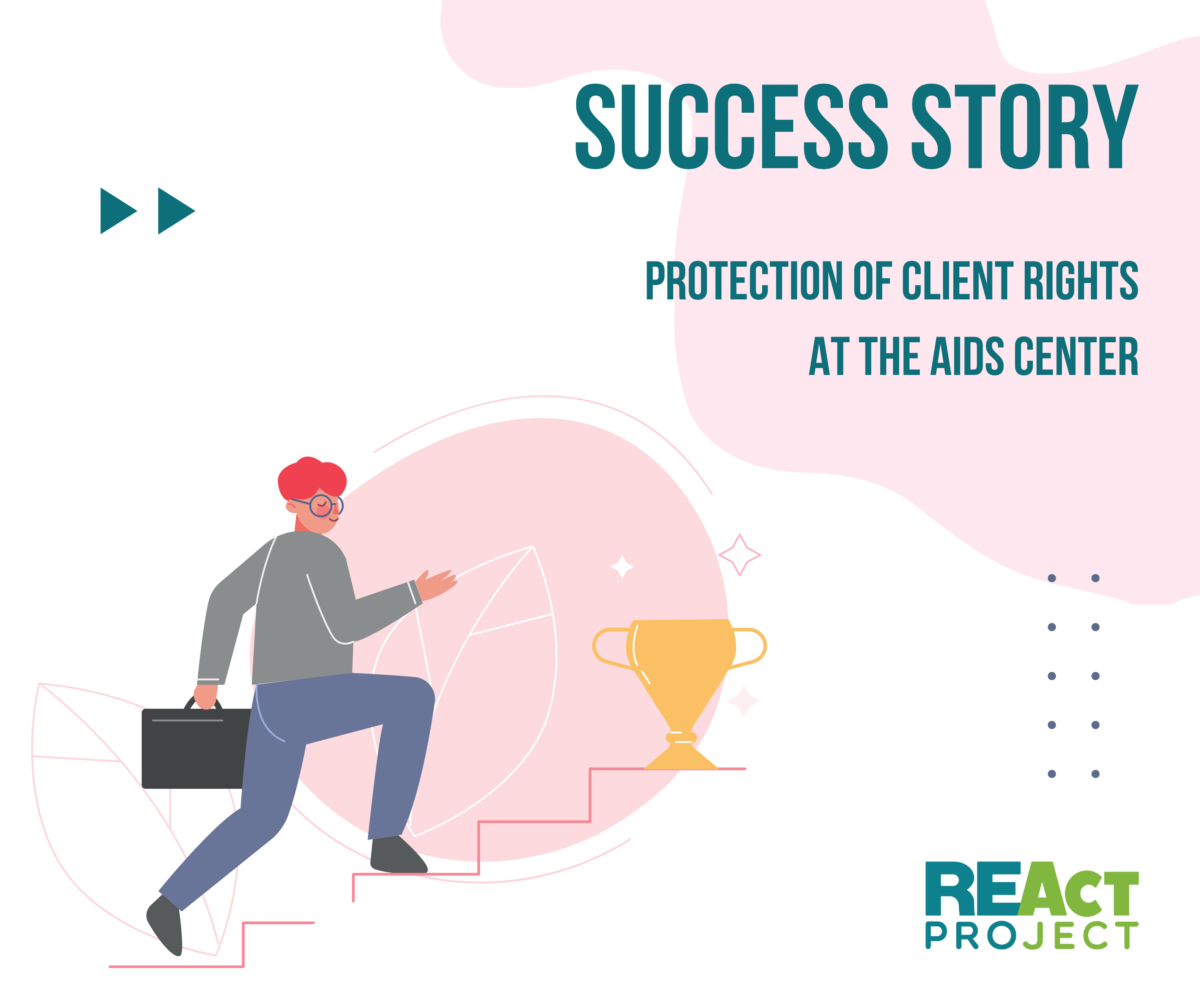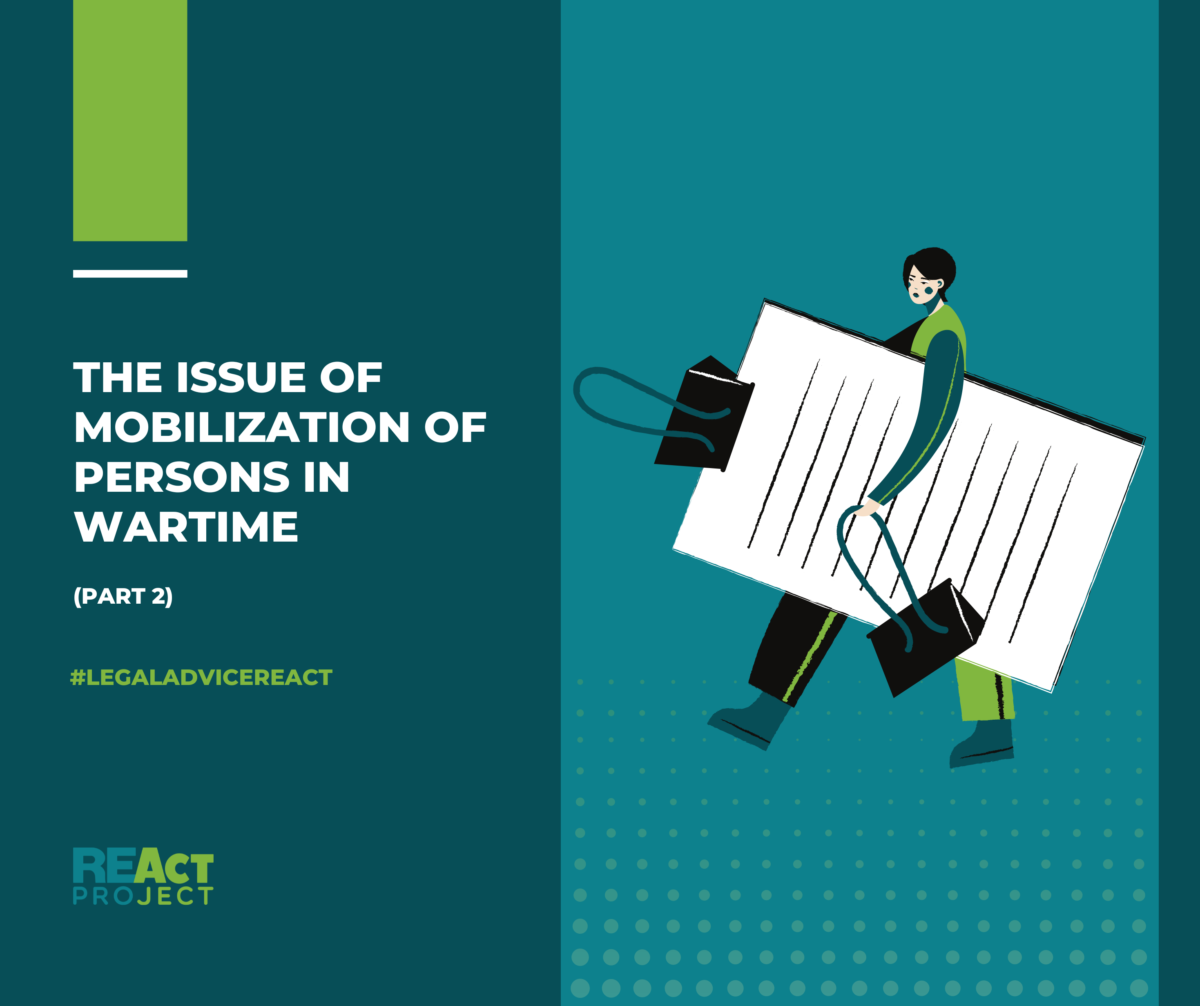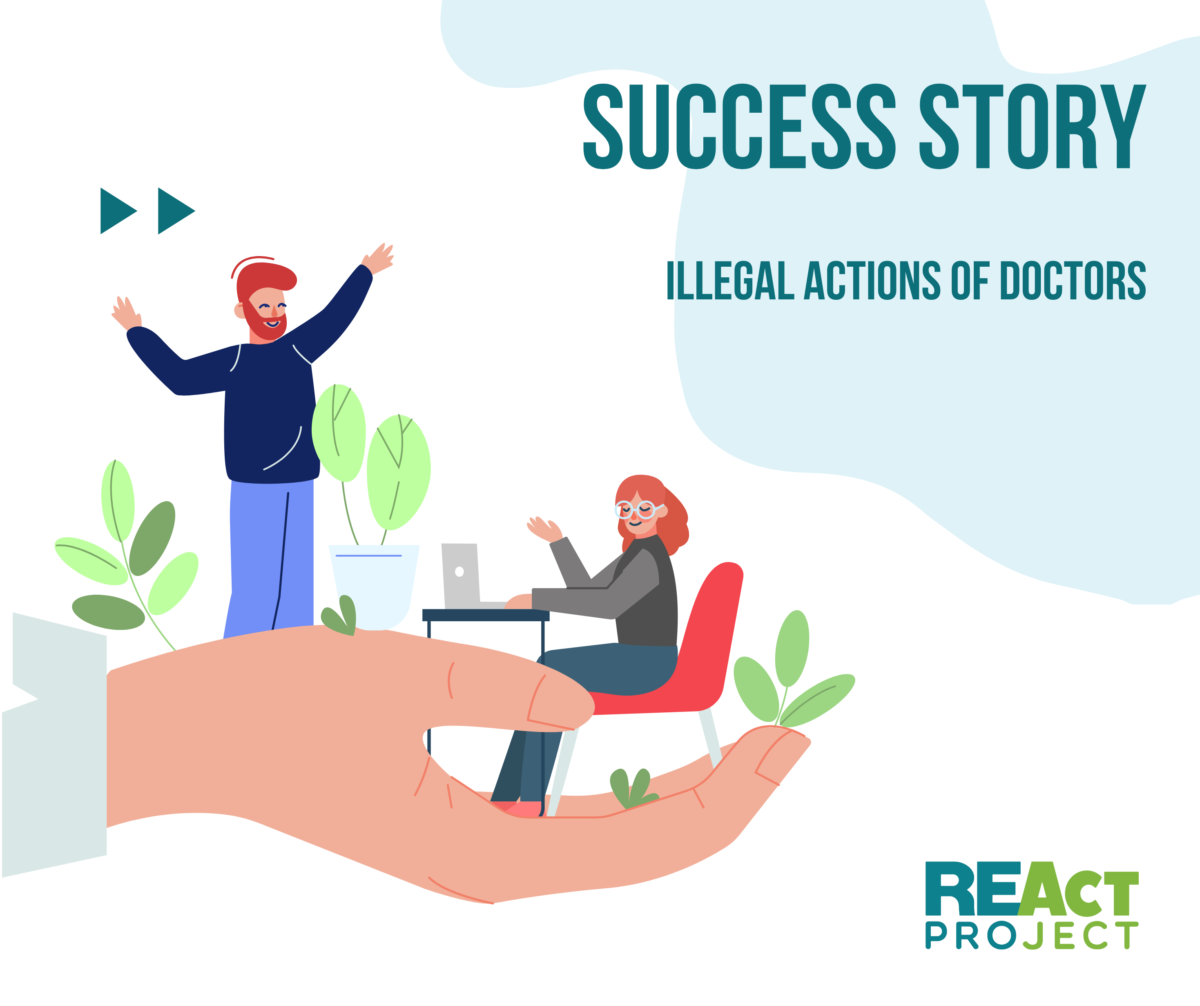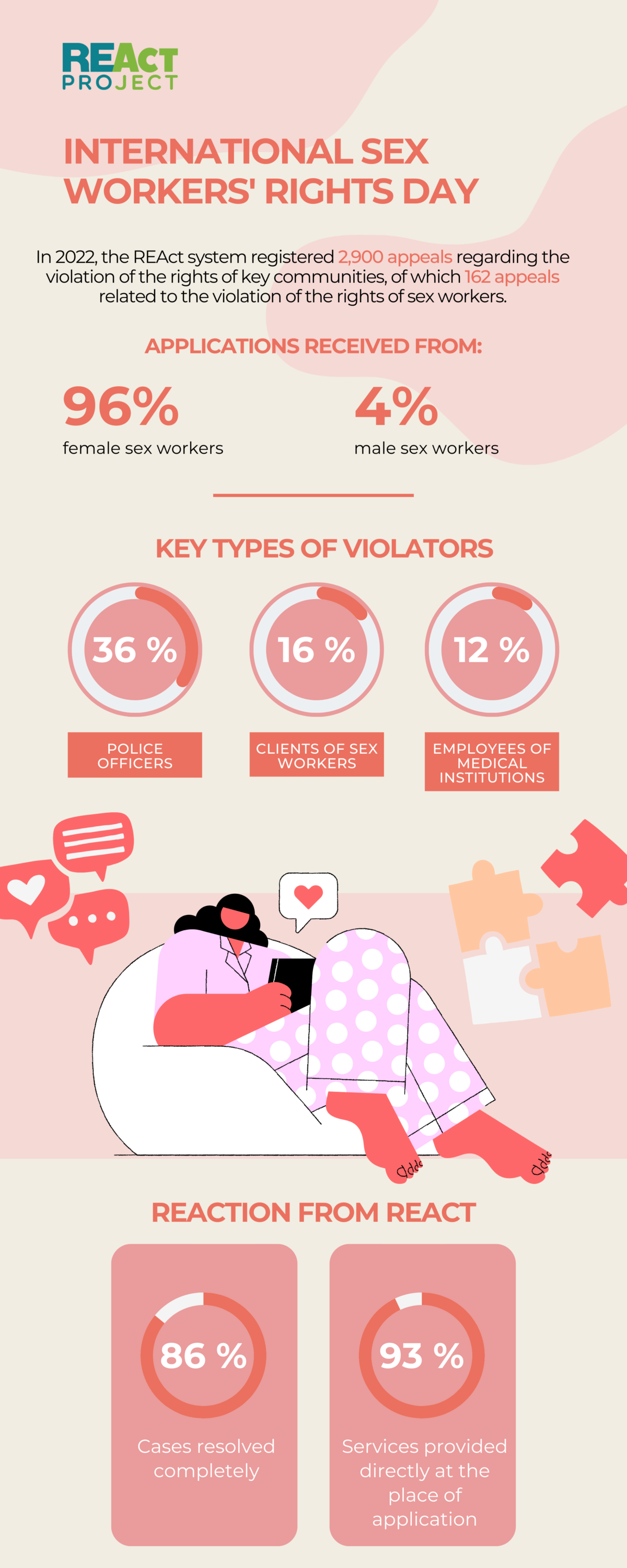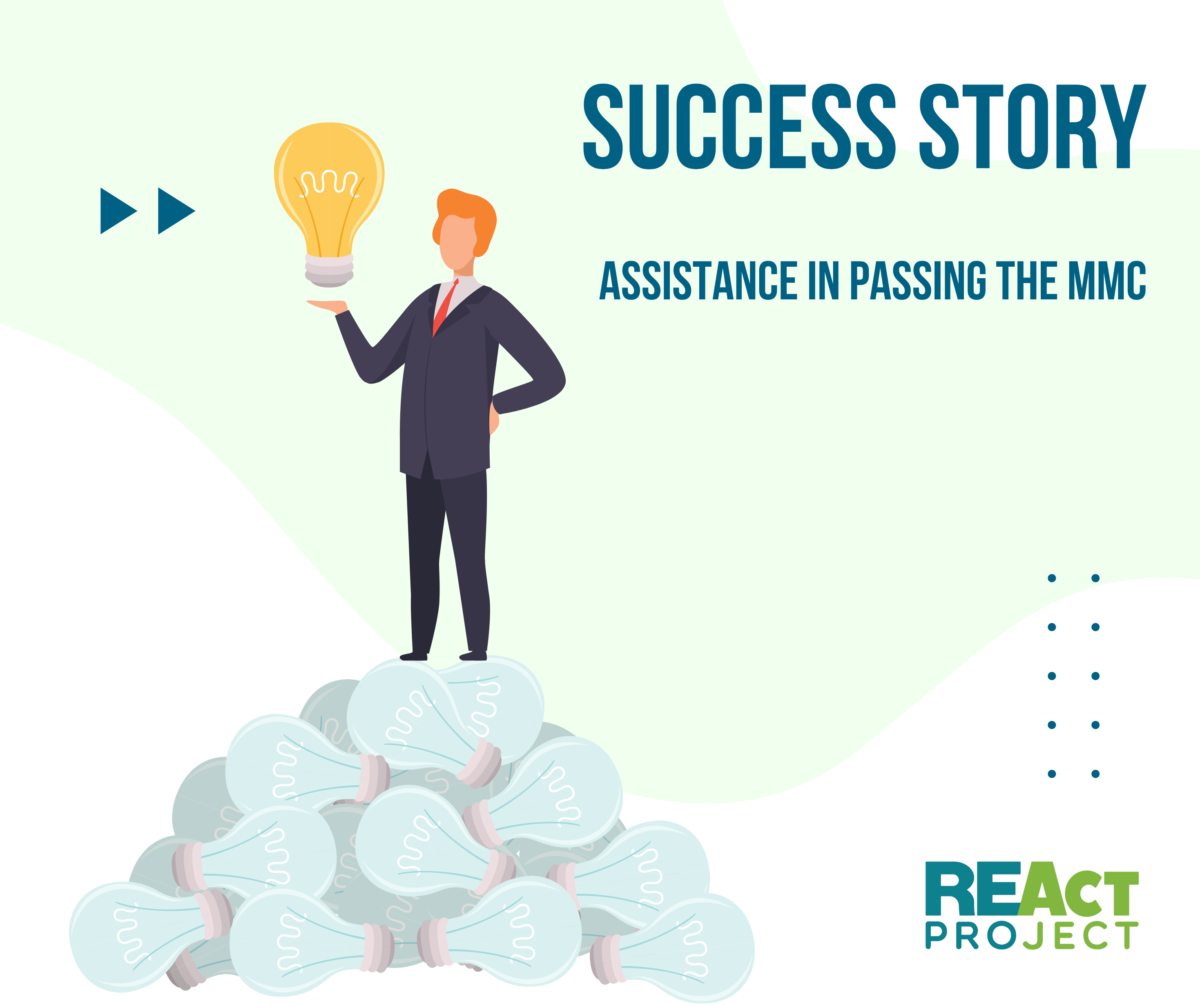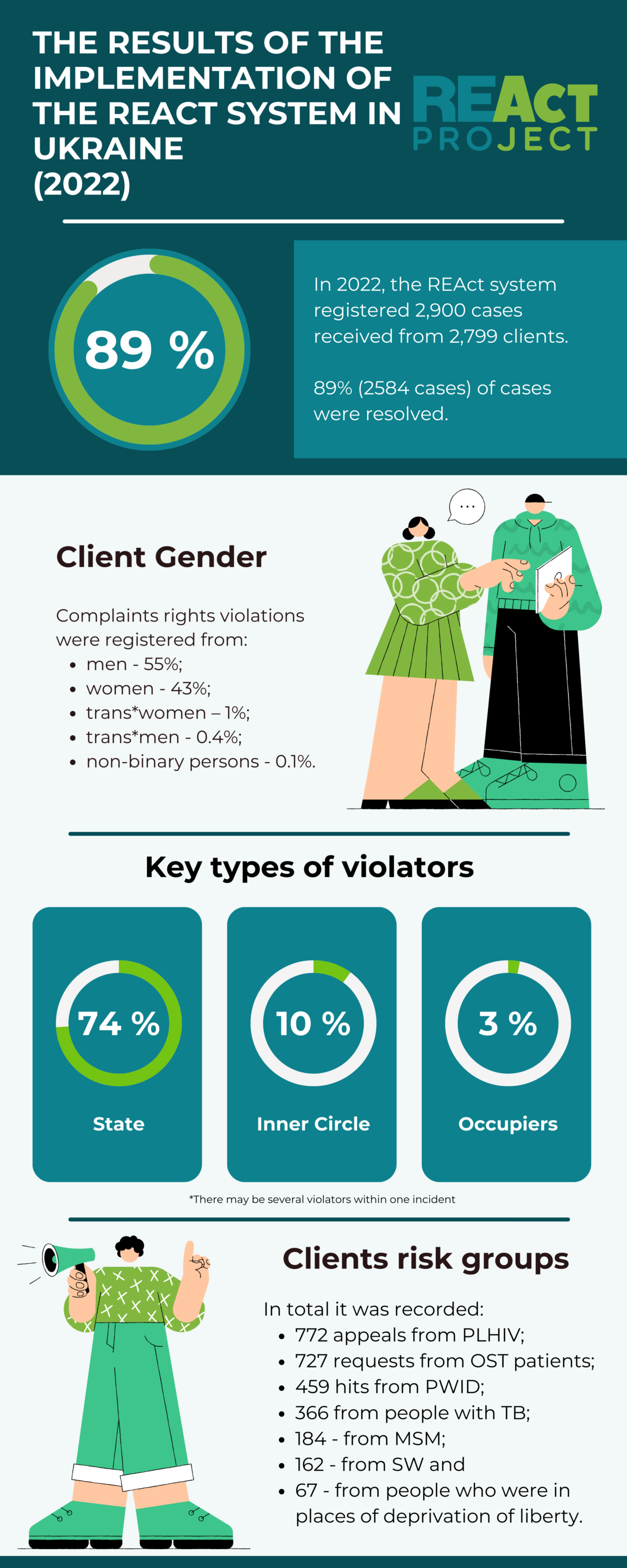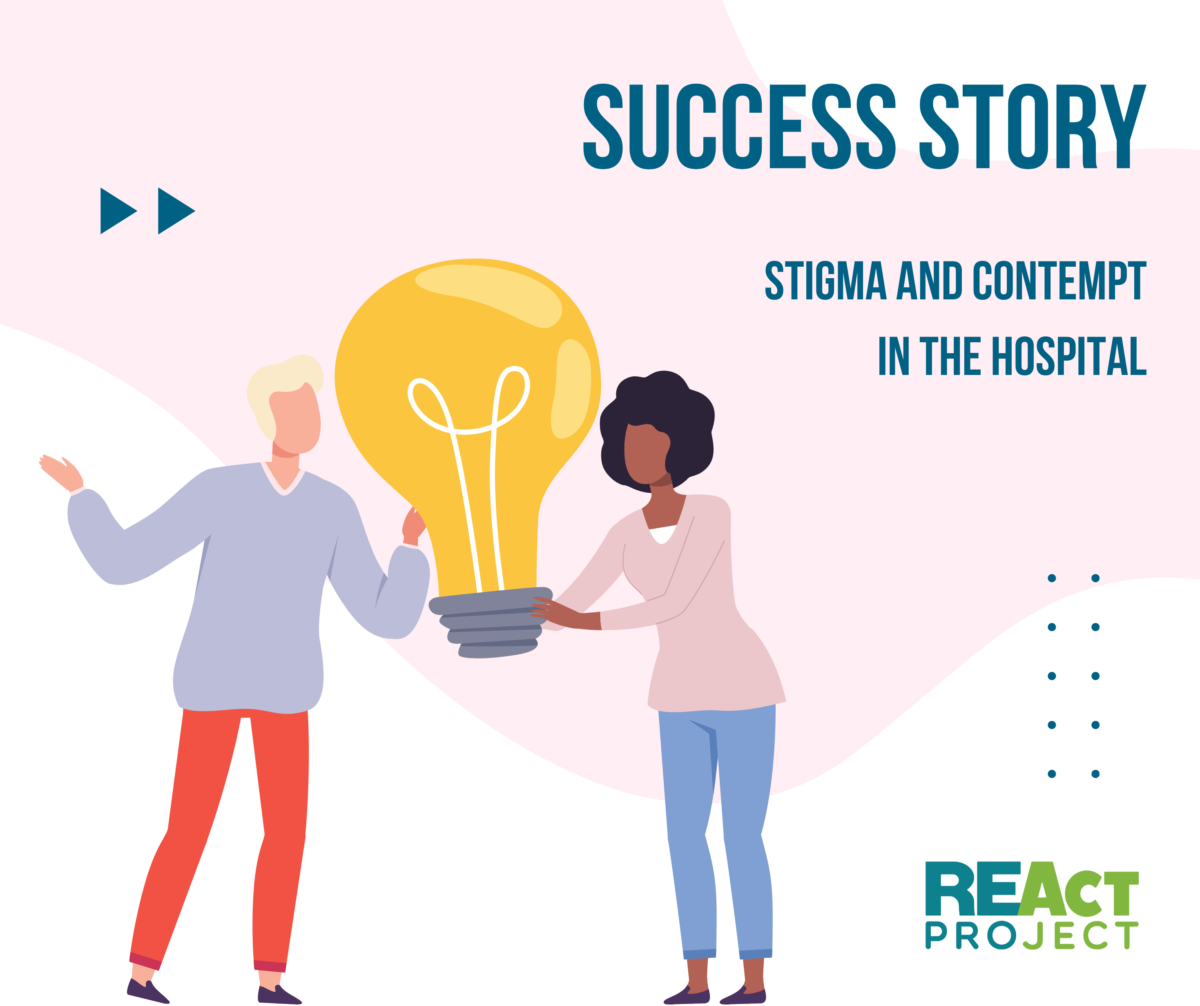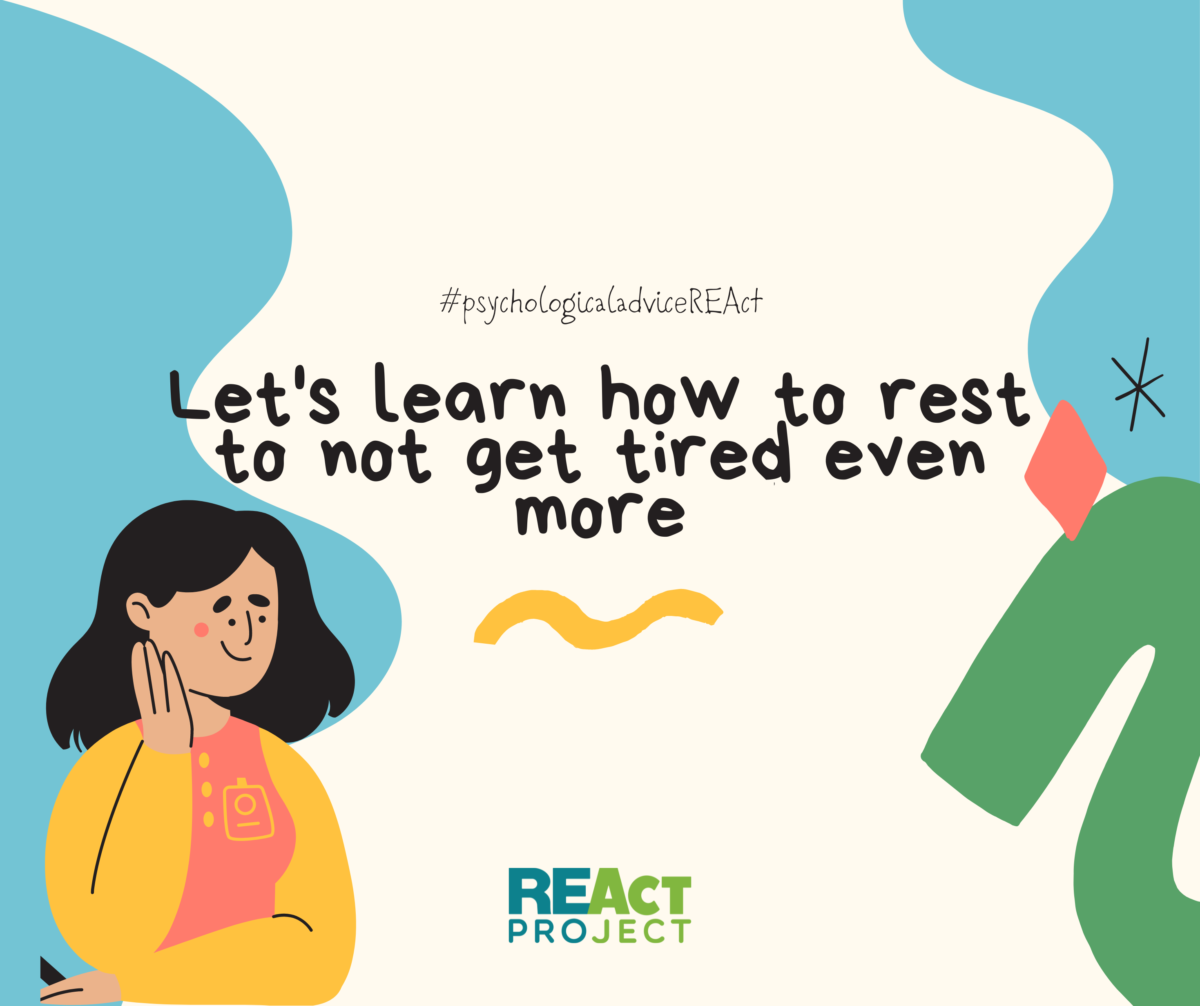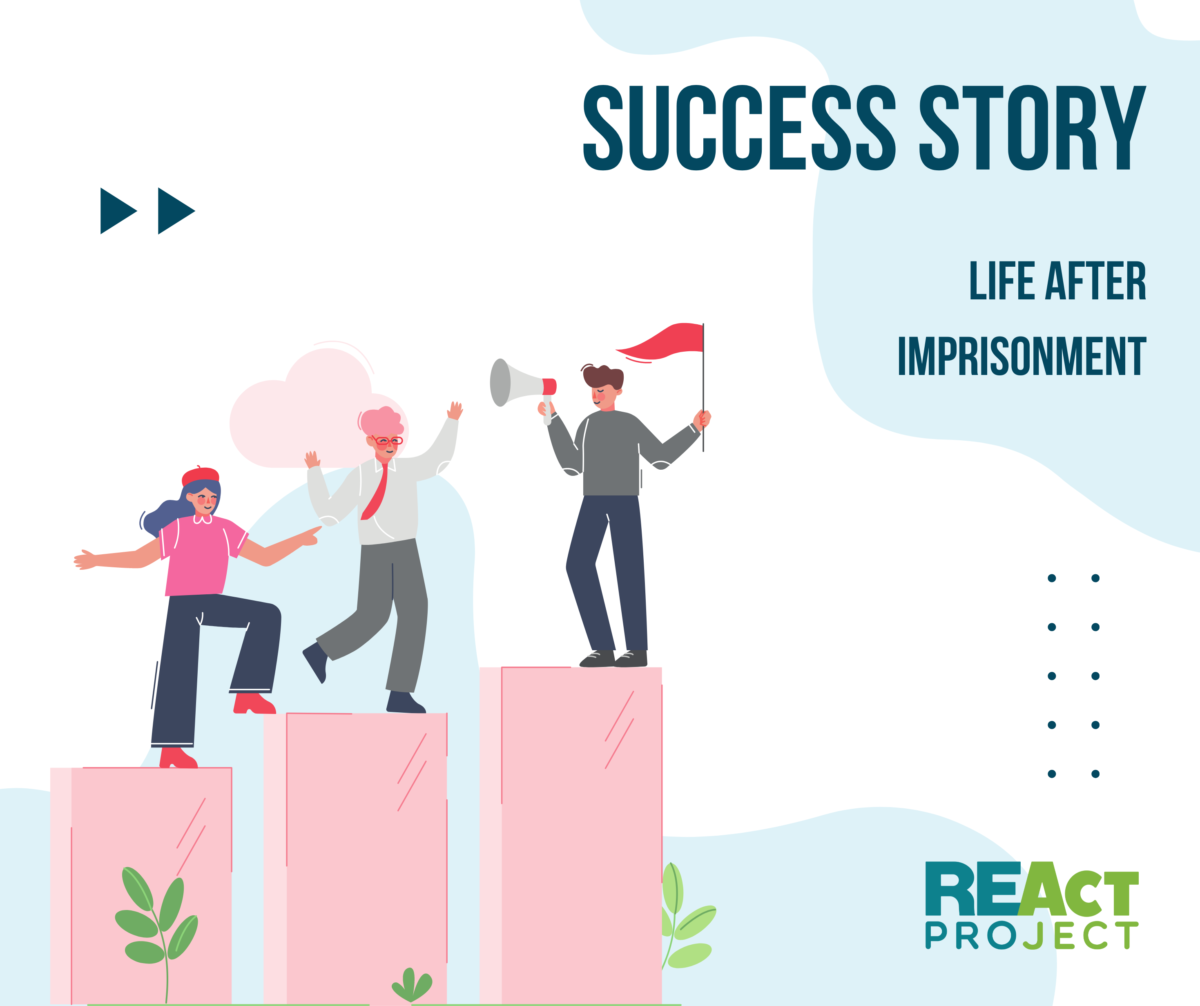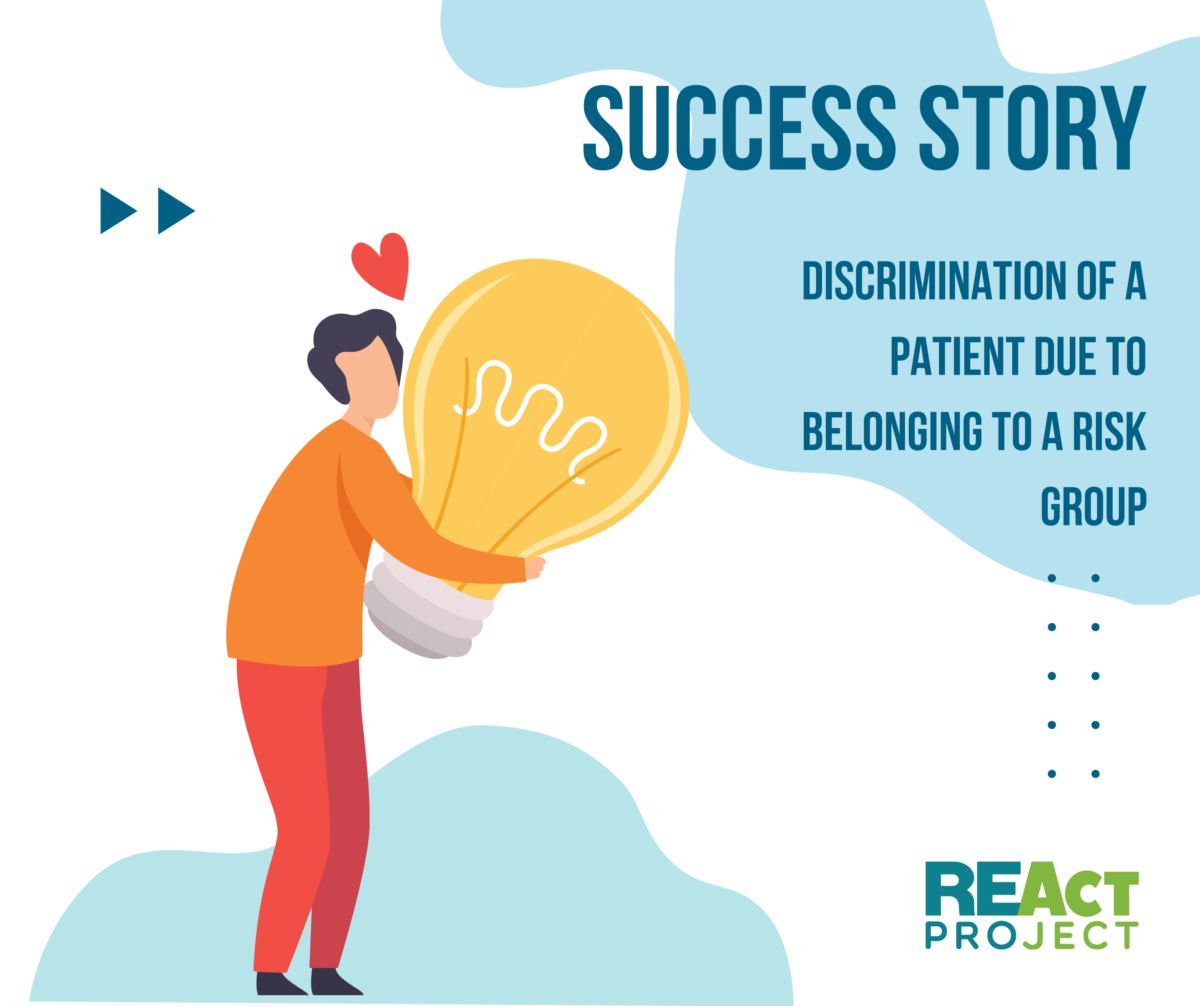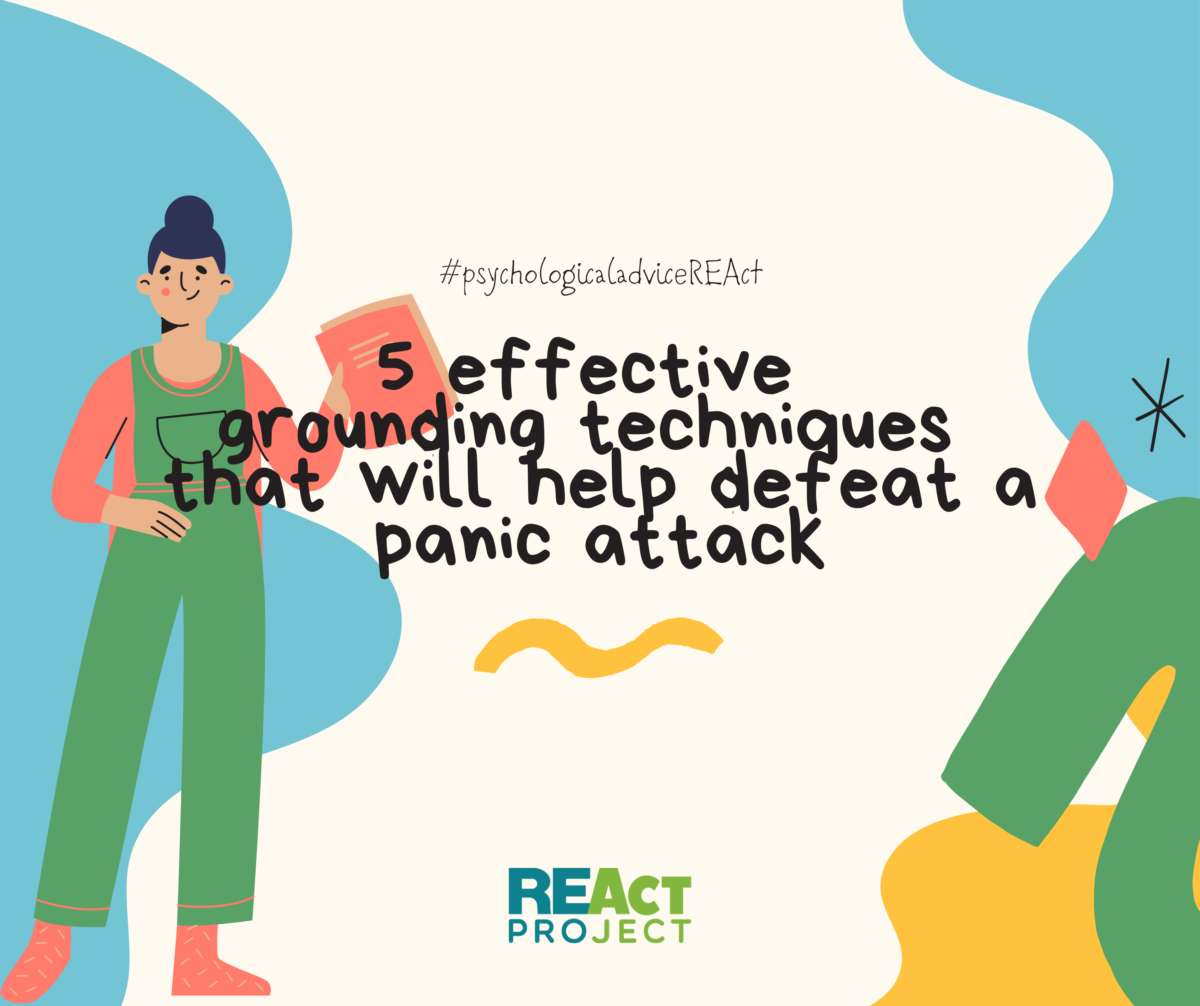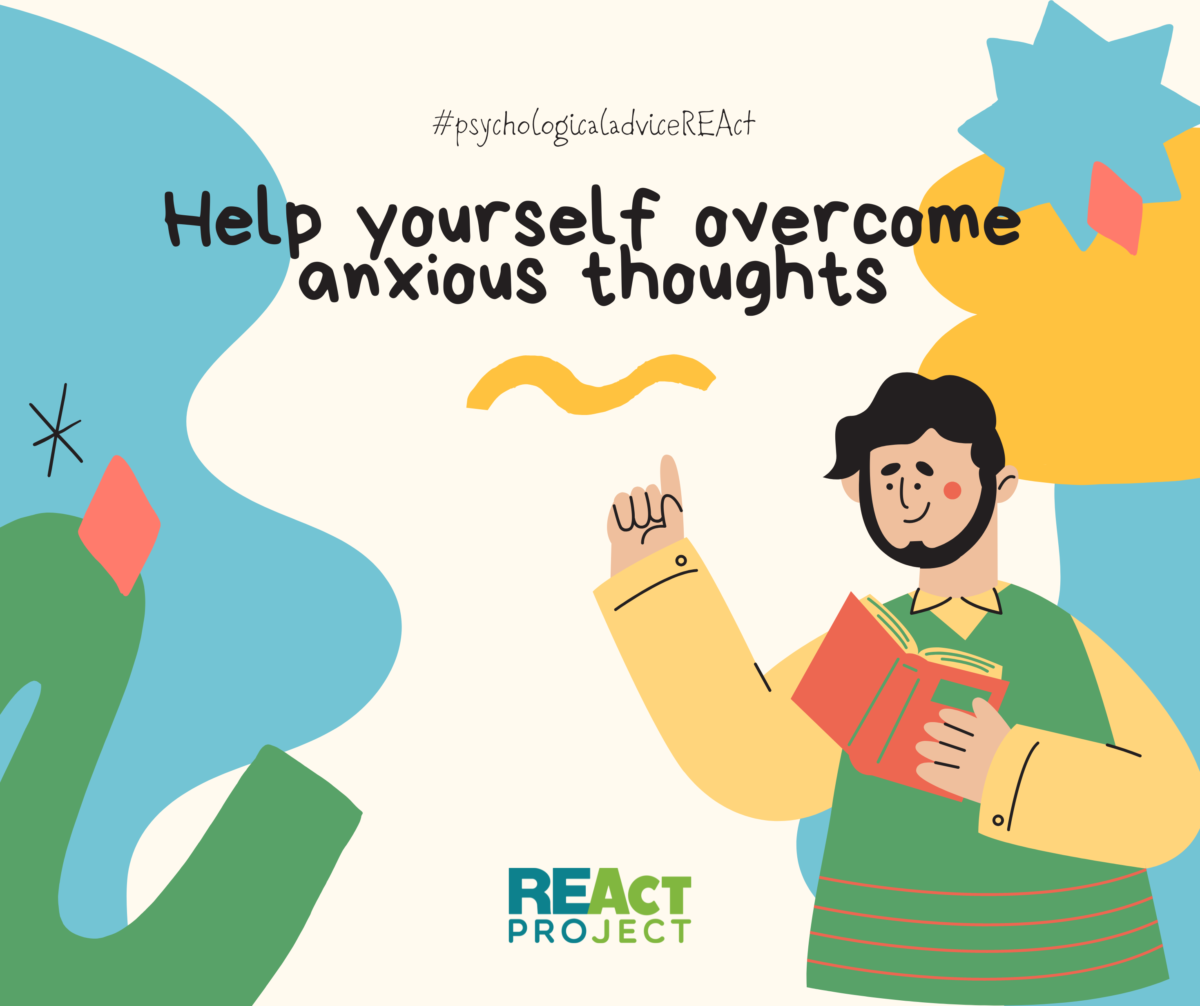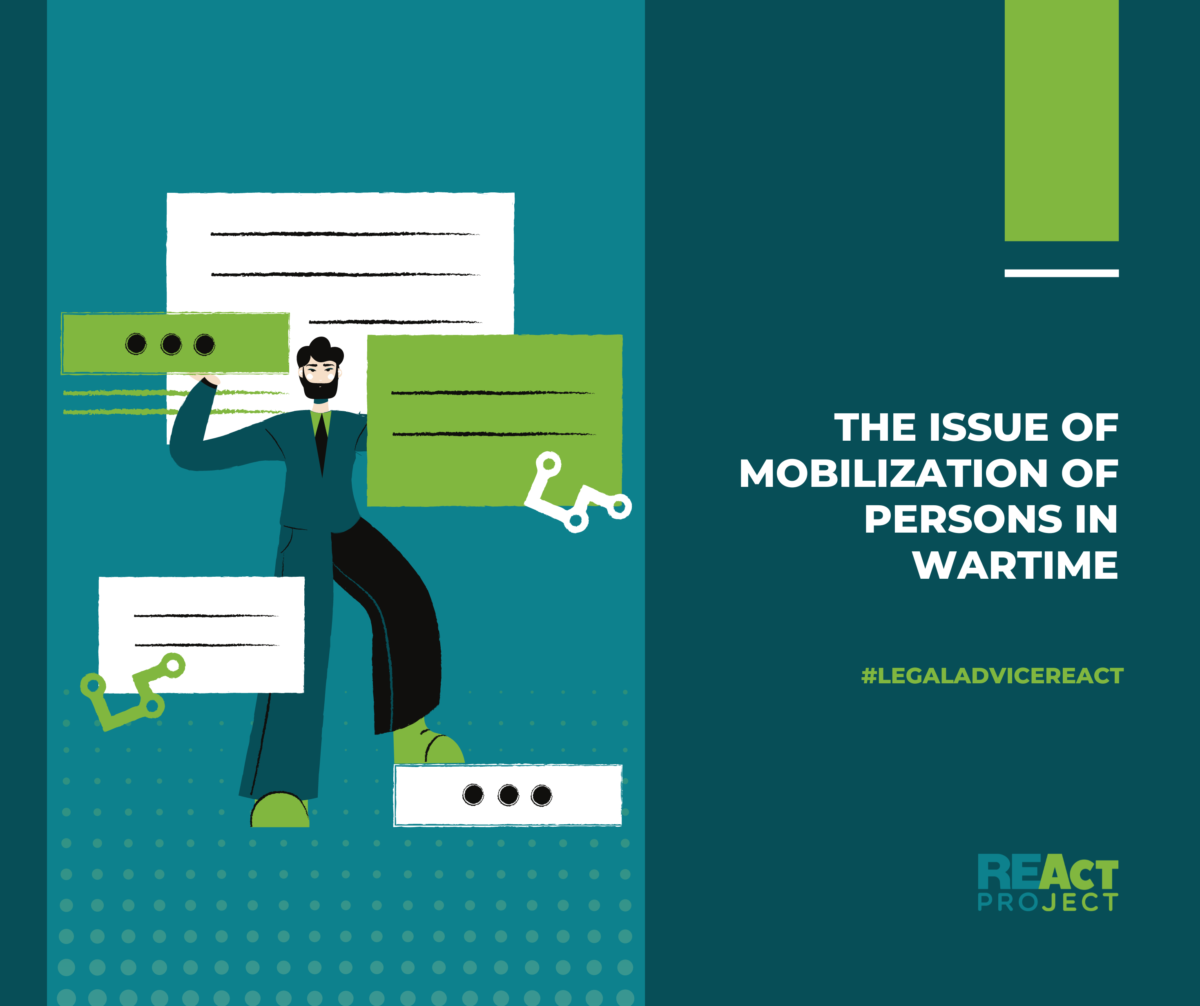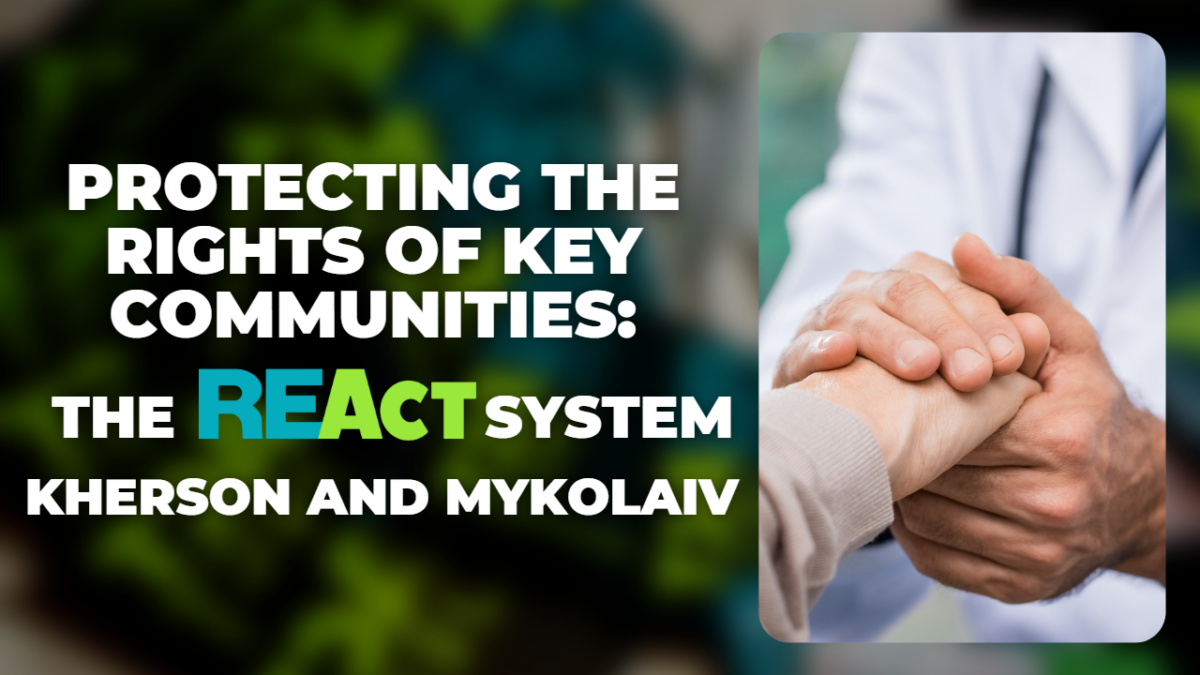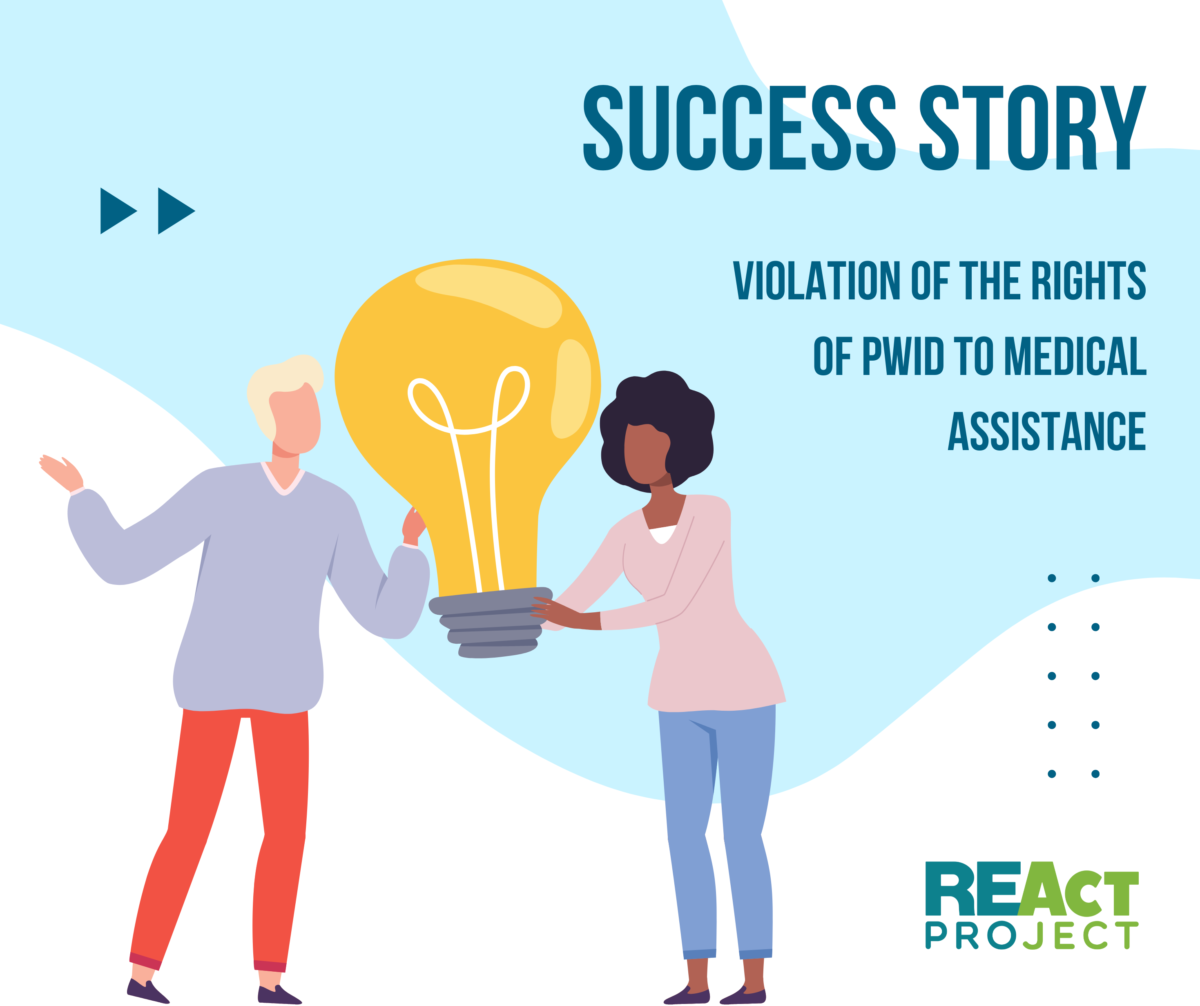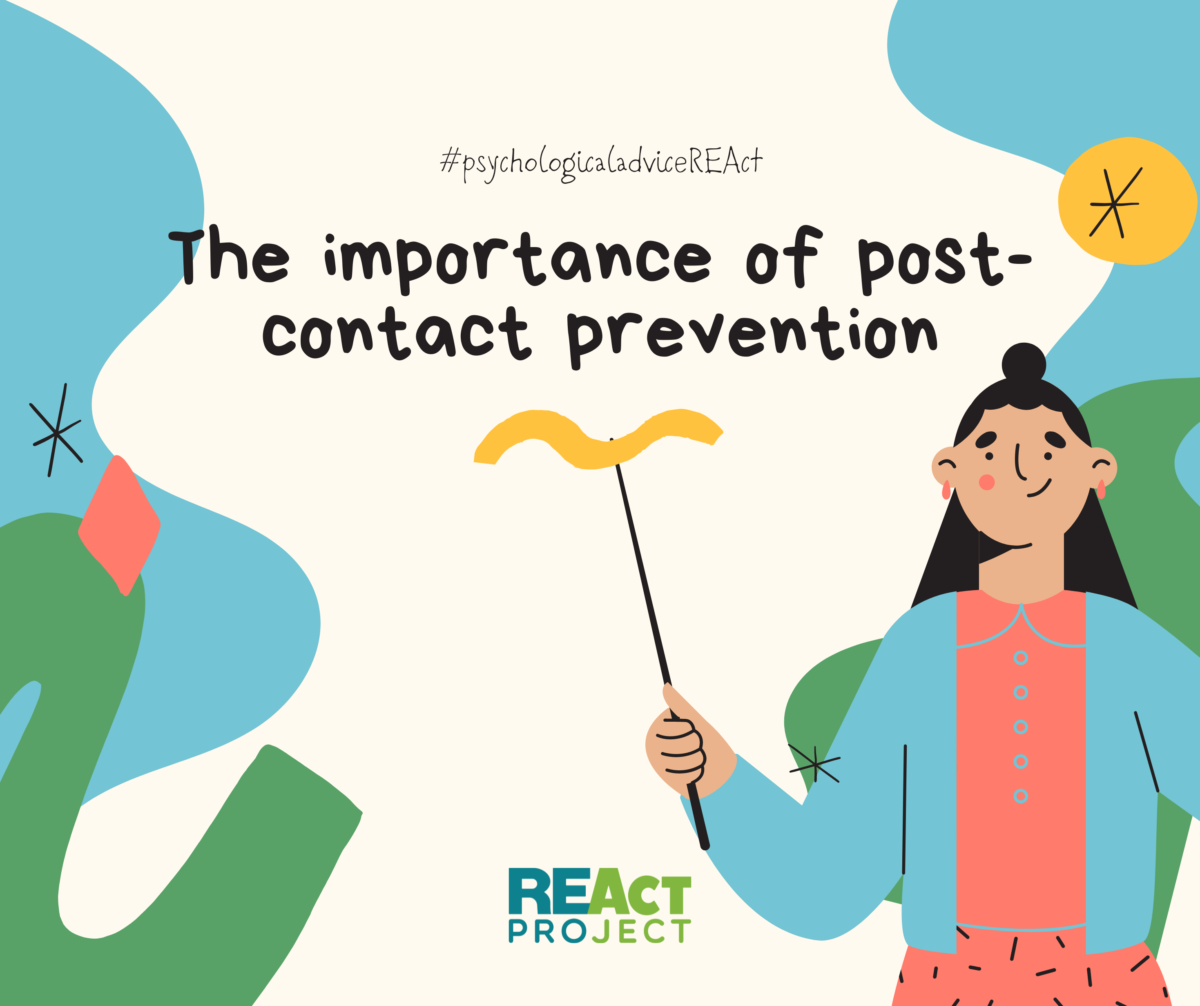General mobilization is underway in Ukraine. But not all persons can take part in military operations due to their health. There are cases when the state of health makes a person unsuitable for a significant load, including during military service, but there are persons who are unfit for military service at all, and there are others who are unfit for it in peacetime, but limitedly fit in wartime. What such a person can do should be decided to take into account individual contraindications according to the medical board. This issue is relevant for representatives of key communities, especially those such as PLHIV, PLHIV, PWID, or OST patients who need regular treatment according to their health status.
As the analysis of reports of violations of rights shows, sometimes there are cases when the project’s community clients encounter situations when conducting mobilization activities on call for a summons for taking into account, which causes them to have doubts about the legality. For example, when they were deemed ineligible for military service because of their HIV status, hepatitis, or tuberculosis, but were informed that they were of limited fitness. Therefore, let’s consider the issue of fitness, unfitness, or limited fitness of a person for mobilization depending on the state of health according to the law.
First, it should be noted that a number of diseases (and, accordingly, a person’s state of health) are an obstacle to completing military service in peacetime, but during a state of war, this list is significantly reduced. Thus, the Law of Ukraine “On Military Obligation and Military Service” dated March 25, 1992 No. 2232-XII directly provides for the military registration of conscripted citizens who, due to their state of health, are recognized as unfit for military service in peacetime, and with limited fitness in wartime.
The conscription of conscripts for military service during mobilization is carried out in accordance with the procedure established by the Law of Ukraine “On Mobilization Training and Mobilization” dated October 21, 1993 No. 3543-XII, which requires conscripts to appear on call at the territorial recruitment center and social support for military registration, determination of their possible destination. This raises the question of who is subject to conscription during mobilization and who is not.
The list of persons not subject to conscription is defined in Article 23 of this Law. Thus, citizens of Ukraine who:
- recognized by the results of a medical examination as unfit for military service due to health conditions, with exclusion from military registration;
- recognized in the prescribed manner as persons with disabilities or, in accordance with the opinion of the Military Medical Commission (MMC), temporarily unfit for military service due to their health for a period of up to six months (a postponement will be granted with the subsequent passing of the MMC)
The list of diseases that give a conscript the right to a postponement or to receive a certificate of unfitness is contained in the Order of the Ministry of Defense “On the Approval of Regulations on Military Medical Examination in the Armed Forces of Ukraine” dated August 14, 2008 No. 402. The list of such diseases is developed in accordance with the requirements of the International Statistical classification of diseases (ICD-10). This is a rather voluminous document, and in particular, it includes the following types of diseases that may be relevant to the attention of community representatives.
Tuberculosis
Persons with active tuberculosis of the lungs with the release of mycobacteria, or active, progressive tuberculosis of other organs of extrapulmonary localization are unfit for military service with exclusion from military registration.
Persons with active pulmonary tuberculosis without the release of mycobacteria, or extrapulmonary tuberculosis during the main course of treatment, are unfit for military service in peacetime and are limited fit for wartime.
Persons with clinically cured tuberculosis are also unfit for military service in peacetime, and limited fit in wartime. Unfitness for military service or limited fitness is determined individually.
Hepatitis
Unfit for military service with exclusion from military registration is only persons suffering from severe forms of viral hepatitis, which are difficult to treat and significantly disrupt the functions of organs and systems of the body.
Viral hepatitis with persistent moderate impairment of organ functions makes a person unfit for military service in peacetime but limitedly fit in wartime. Unfitness for military service or limited fitness is determined individually by the MMC.
Viral hepatitis without impairment of function or with minor impairment of organ function makes a person fit for wartime. Fitness for military service or limited fitness of a person is determined individually by the MMC.
HIV
Persons with a disease caused by HIV, which is accompanied by infectious, parasitic diseases, malignant tumors, and other specified diseases (B20-B22) are unfit for military service with exclusion from military registration.
Persons with a disease caused by HIV, which is accompanied by another condition (B23, B24) are unfit for military service in peacetime but have limited fitness in wartime. Unfitness for military service or limited fitness is determined individually. Persons with asymptomatic carriers of HIV are also of limited use in wartime.
Mental and behavioral disorders due to the use of psychoactive substances (F10 – F19)
Persons with addiction syndrome with severe, persistent mental disorders are not suitable for military service with exclusion from military registration.
Individuals with dependence syndrome with moderate or minor mental disorders are unfit for military service in peacetime, but limited fit in wartime
To confirm the state of health, a person must present documents to the territorial recruitment and social support center, including medical reports from the relevant healthcare institution, and undergo a medical examination at the MMC. But remember that only the relevant military medical commission (MMC) has the right to make a conclusion about unfitness for military service.
The medical examination is conducted by the MMC and includes the study and assessment of the state of health of such a person. Each conscript must be examined by a surgeon, therapist, neurologist, psychiatrist, ophthalmologist, otorhinolaryngologist, dentist, dermatologist, and, if medically indicated, by doctors of other specialties.
During the examination of conscripts, doctors are obliged to determine their state of health and degree of suitability for military service. At the same time, the nature of the person’s illness or physical disability, the degree of their development, functional impairments, and the requirements that the military service places on the state of health must be taken into account.
After the examination, each doctor records in the conscript’s registration card (at the assembly point – in the medical examination card of the conscript at the assembly point) a conclusion on suitability (temporary unfitness or complete unfitness) for military service, the corresponding article of the schedule of diseases, the date of the examination and signs the conclusion indicating his surname and initials and seals with a personal seal. Based on the results of a medical examination by specialists, the responsible doctor – a member of the commission makes a final decision regarding the conscript’s fitness for military service, which is sealed with his signature and the doctor’s personal seal.
In the event that it is difficult for doctors to determine the conscript’s state of health, he can be sent for an outpatient or inpatient examination in a medical and preventive institution.
According to the results of a medical examination of a person, the MMC may make one of the following decisions:
- suitable for military service.
- temporarily unfit for military service, in need of treatment (in wartime, conscripts can be deferred from conscription for a period of up to 2 months due to their health, and for medical reasons, it can be extended for 2 months and for the third time – for the same period). After the end of the postponement, a second medical examination must be conducted to decide the issue of further fitness for military service.
- is subject to referral for an additional medical examination and a repeat medical examination (with an indication of the date of the examination).
- unfit for military service in peacetime, limited fit in wartime, and subject to registration as conscripts.
- unfit for military service with exclusion from military registration, subject to exclusion from military registration.
In controversial matters, when the person who is being mobilized does not agree with the conclusions of the doctors of the commission, he can also be sent for a control examination at a military medical institution. Also, in such a case, she has the right to challenge the conclusion of the local MMC and demand the Central MMC to carry out her examination. Also, in any case, a person has the right to appeal to the court in case of violation of his rights.


